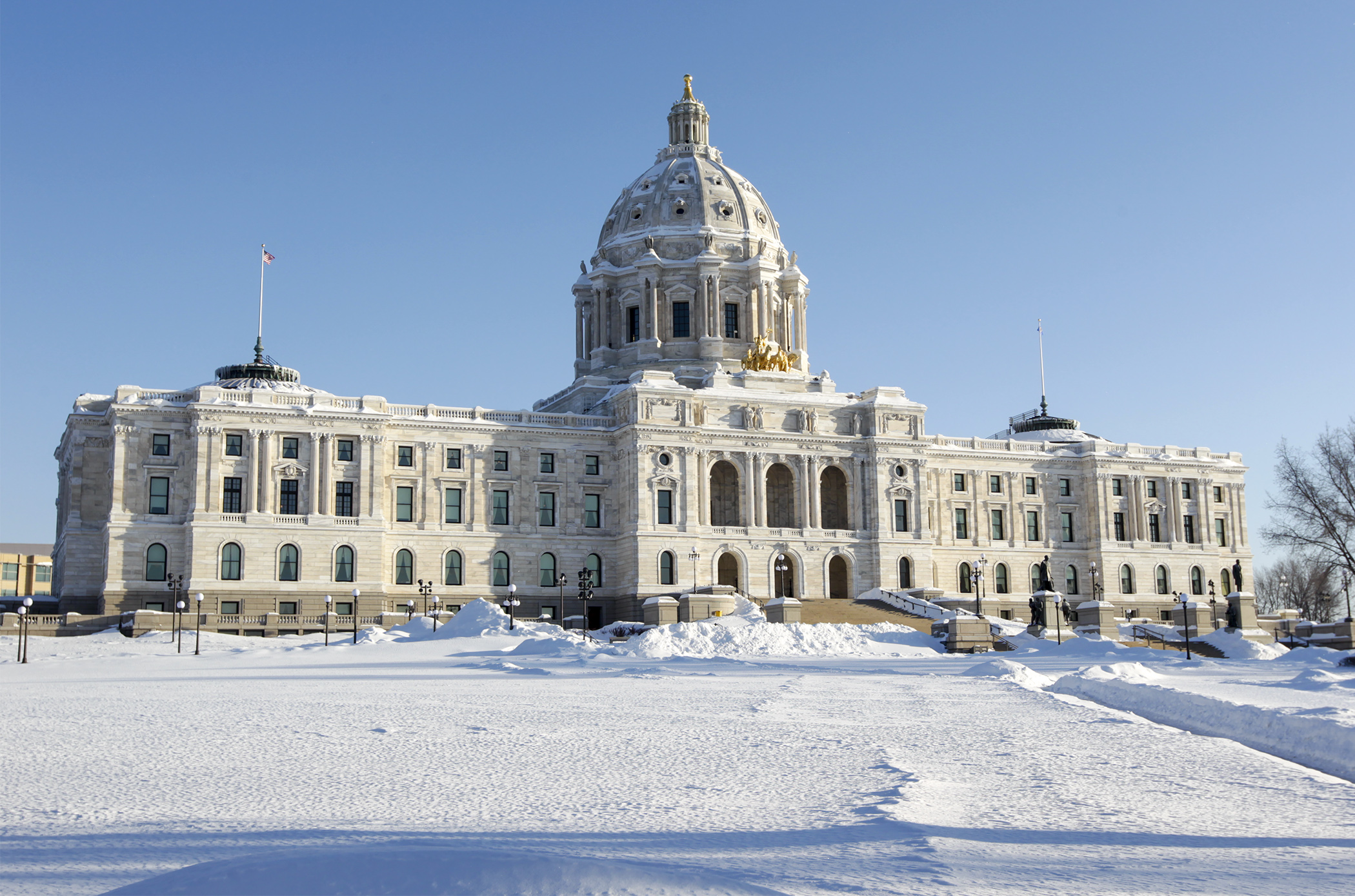House workforce panel ponders action to avoid tax increase for employers

Using surplus money to replenish the state’s Unemployment Insurance Trust Fund would mean Minnesota businesses avoid a big jump in their unemployment insurance rates, House lawmakers heard Monday.
The House Workforce and Business Development Finance and Policy Committee took testimony on three different proposals intended to tackle the problem, although they differ on exactly how to do so.
During testimony from Department of Employment and Economic Development representatives, members learned the economic downturn caused by the COVID-19 pandemic has not only drained the state’s unemployment insurance trust fund, but required Minnesota to borrow $1.2 billion from the federal government. At one point, 1 in 5 workers were receiving unemployment.
The key number is $2.7 billion, said DEED Commissioner Steve Grove – enough to repay the federal government and return the fund to pre-pandemic numbers.
Employers have been informed of a higher tax rate without legislative changes as well as additional assessments required to replenish the fund, which would likely take about a decade.
Legislators and Gov. Tim Walz have proposed using the forecasted state budget surplus instead of tax increases, but action must be taken by March 15 due to the way bills are paid.
HF2728, sponsored by Rep. Barb Haley (R-Red Wing), would replenish the fund using state money along with funds from the American Recovery Plan Act.
“There is an agreement on the number we need to replenish this fund and restore solvency – the $2.7 billion,” she said, adding that there has been discussion about needing a clean bill passed in a timely fashion.
“That’s what my bill does,” she said. “It is a clean bill that aligns with the governor’s recommendations and very closely with the bill that is moving in the Senate.”
Sen. Rich Draheim (R-Madison Lake) sponsors the companion, SF2665, which awaits action by the Senate Jobs and Economic Growth Finance and Policy Committee.
Sponsored by Rep. Carlie Kotyza-Witthuhn (DFL-Eden Prairie,) HF3000 would appropriate $2.7 billion as well, but it would also allow hourly school workers, such as bus drivers, paraeducators and lunchroom staff, to be covered by unemployment insurance. It has no Senate companion.
Rep. Mohamud Noor (DFL-Mpls), the committee chair, is proposing legislation, which has not yet been introduced, that would also repay the federal government, but would replenish the trust fund using more typical mechanisms through employers. It would eliminate special assessments and increase the UI base rate from 0.1% to 0.4%.
Proponents of his bill believe the budget surplus could be used more effectively to help small businesses and workers.
Business owners and their representatives said state help is needed to avoid huge tax increases – from 50% to more than 200% – which could cost thousands of dollars.
However, several others countered that freezing UI tax rates benefits large national employers more than small-businesses owners. Moreover, they say, UI taxes are not a significant part of their business expenses.
Rebecca Foley, owner of Anoka’s Phoenix Growth Systems, pays about $80 per quarter for her two employees. She said in a letter she appreciates the discussion but has concerns that simply refilling the trust funds won’t help small businesses as much as other programs could.
Related Articles
Search Session Daily
Advanced Search OptionsPriority Dailies
Ways and Means Committee OKs proposed $512 million supplemental budget on party-line vote
By Mike Cook Meeting more needs or fiscal irresponsibility is one way to sum up the differences among the two parties on a supplemental spending package a year after a $72 billion state budg...
Meeting more needs or fiscal irresponsibility is one way to sum up the differences among the two parties on a supplemental spending package a year after a $72 billion state budg...
Minnesota’s projected budget surplus balloons to $3.7 billion, but fiscal pressure still looms
By Rob Hubbard Just as Minnesota has experienced a warmer winter than usual, so has the state’s budget outlook warmed over the past few months.
On Thursday, Minnesota Management and Budget...
Just as Minnesota has experienced a warmer winter than usual, so has the state’s budget outlook warmed over the past few months.
On Thursday, Minnesota Management and Budget...